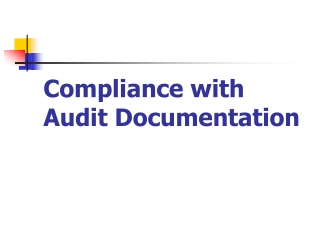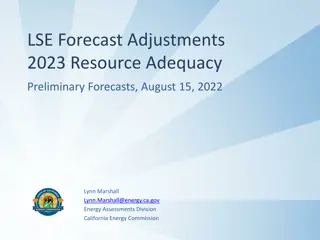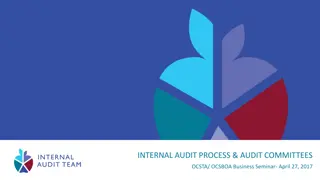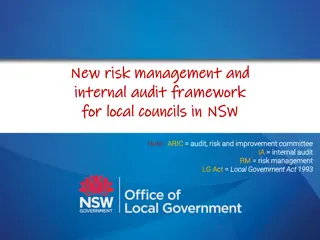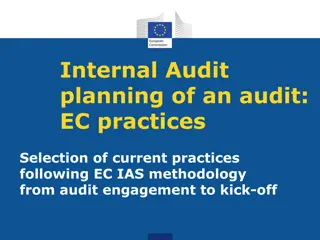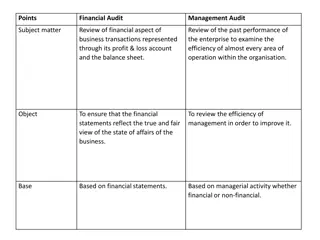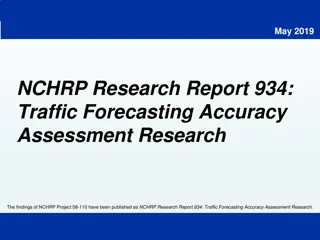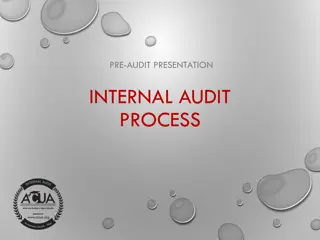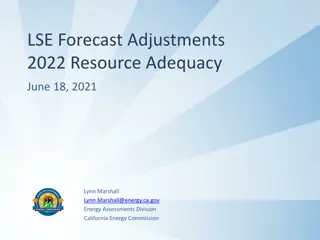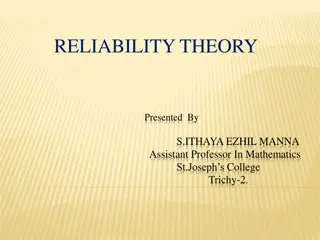Reliability of Macroeconomic Forecasts Audit
This audit assessed the reliability of macroeconomic forecasts prepared by the Ministry of Finance, focusing on statistical accuracy, transparency of methods, organizational independence, and overall findings of economic forecasts. Results indicate that forecasts are statistically reliable and comparable to other forecasting institutes, meeting legislative requirements.
Download Presentation

Please find below an Image/Link to download the presentation.
The content on the website is provided AS IS for your information and personal use only. It may not be sold, licensed, or shared on other websites without obtaining consent from the author.If you encounter any issues during the download, it is possible that the publisher has removed the file from their server.
You are allowed to download the files provided on this website for personal or commercial use, subject to the condition that they are used lawfully. All files are the property of their respective owners.
The content on the website is provided AS IS for your information and personal use only. It may not be sold, licensed, or shared on other websites without obtaining consent from the author.
E N D
Presentation Transcript
Reliability of macroeconomic forecasts Ville Vehkasalo INTOSAI Working Group on Key National Indicators Bras lia, 26.4.2017
Contents Motivation for the audit Questions and criteria Main findings and recommendations
Reliable macroeconomic forecasts are essential for successful fiscal policy
Motivation The aim of this audit was to determine whether the organization, methods and reporting of the forecasting work are in accordance with the legislative requirements The aim was also to determine whether the macroeconomic forecasts prepared by the Ministry of Finance give a true and fair picture of the economy
Questions and criteria 1) Are the Ministry of Finance s macroeconomic forecasts statistically reliable? Criteria: statistical inference; statistical tests
Questions and criteria 2) Are the forecasting processes and methods of the Ministry of Finance properly explained and described in an open and transparent manner? Criteria: Budgetary Frameworks Directive (2011/85/EU), recommendations based on IMF and OECD reports
Questions and criteria 3) Is the forecasting work in the Ministry of Finance organised and managed so that the requirement for independence is met? Criteria: EU legislation, reliability of the findings, openness of documentation, best practices of the independent organization of activities
Economic forecasts produced by the Ministry of Finance are statistically reliable
Main findings Macroeconomic forecasts prepared by the Ministry of Finance are not statistically biased There is no difference between the accuracy of the economic forecasts produced by the Ministry of Finance and those published by other forecasting institutes
Average absolute value of the forecast error (t+0) produced by different forecasting institutes between 1997 and 2014
Main findings The preparation of the forecasts is poorly documented Risks contained in the forecasts are not described in a comprehensive and clear manner Forecasting by the Ministry of Finance is not fully transparent
Main findings Independence of the forecasting by the Ministry of Finance is based on national legislation Fiscal forecasts are prepared in close cooperation with budgetary authorities Public communication is carried out in a timely manner
There should be more focus on ensuring that the forecasts are seen as reliable by outsiders
NAOs recommendations The forecast errors in the forecasts produced by the Ministry of Finance should be analyzed and published on a regular basis The Ministry of Finance should produce a systematic documentation of the methods Strengthening and highlighting the independent nature of the forecasts
Thank you! For details, see NAO Finland s fiscal policy audit report 11/2016 (also in English) https://www.vtv.fi/files/5277/11_2016_Reliability_of_macroeconomic_forecasts.pdf Further information from the fiscal policy auditor in charge, Mr Ville Haltia, ville.haltia@vtv.fi


